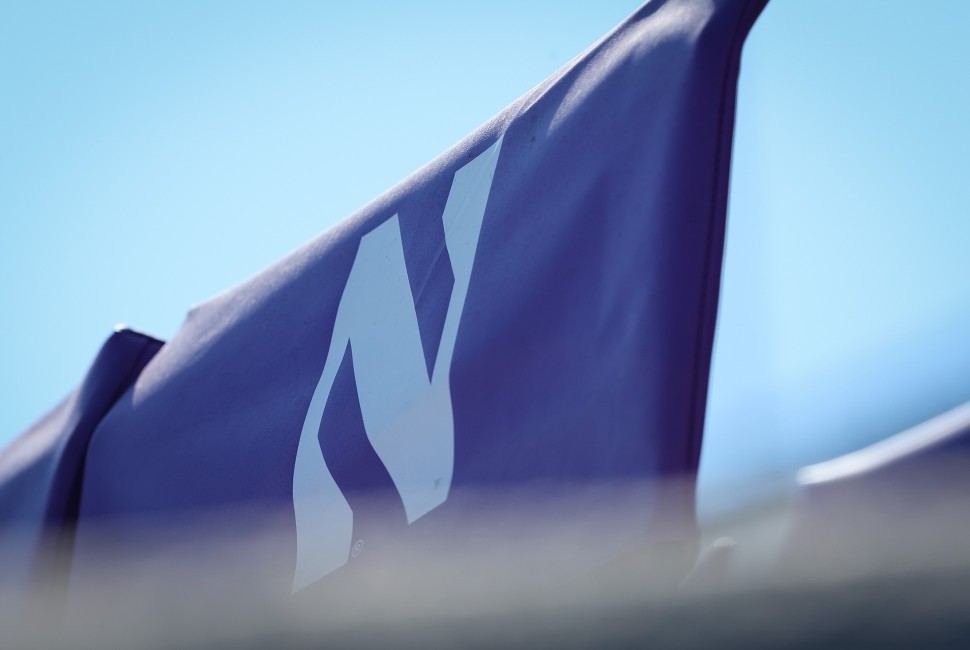Northwestern University today released the full report by law firm Paul, Weiss, Rifkind, Wharton & Garrison LLP, which has spent the past 11 months conducting an independent review of the processes and accountability mechanisms in place at the University to detect, report and respond to potential misconduct in its athletics programs, including hazing, bullying and discrimination of any kind.
In July 2023, President Michael Schill and Combe Family Vice President for Athletics and Recreation Dr. Derrick Gragg announced a series of steps to uphold student-athlete safety and ensure that our athletics program is fully aligned with and reflects University values. They commissioned an independent review, led by former U.S. Attorney General Loretta Lynch, to examine the culture of Northwestern Athletics and its consistency with the University’s mission and values as a leading academic institution.
The report states “the results of our review have been largely positive,” but lists a number of recommendations for the University, including areas in which improvements can be made.
In the report’s Executive Summary, the review team says it “observed a commitment by the University and Athletics Department to the well-being of their student-athletes,” and that “many of the student-athletes who participated in our review expressed great appreciation for the resources made available to them at Northwestern, and generally spoke highly of their college athletic experience there.”
The hope, the report says, is that the team’s recommendations “will only enhance the Northwestern student-athlete experience.”
Northwestern is providing details about its plans to respond to the report’s recommendations this summer and fall, as well as updates on progress made over the last year to meet the changing needs and expectations of the student-athlete population.
Independent review
Beginning in July 2023, Lynch and her team engaged extensively with various stakeholders, conducting interviews with more than 120 people, including current and former student-athletes, non-athlete students, coaches, Athletics administrators and staff, faculty, University administrators and trustees. They thoroughly examined relevant documents and data, including University and Athletics department policies and procedures.
The report highlighted Northwestern’s commitment to fostering a positive student-athlete experience. The reviewers noted that Northwestern’s Athletics culture is defined by a commitment to both academic and athletic excellence, highlighting the combination of elite academics and Big Ten athletics as a key point of pride for students and staff alike.
“As a university, we remain steadfast in our commitment to fostering a safe and inclusive environment for all members of our community, including student-athletes,” said Northwestern President Michael Schill. “I am proud that Attorney General Lynch and her team found a robust culture within Athletics that is exemplary of the values we seek to uphold at Northwestern. Their diligent examination of the Athletics culture is an instrumental part of our path towards continuous improvement, and we are committed to implementing their recommendations.”
The reviewers identified several areas for improvement, primarily focused on strengthening communication channels between student-athletes, coaches, and Athletics department staff and leadership with University administrators and faculty and introducing new resources to bolster reporting mechanisms. The recommendations from the report are as follows:
- Develop guidance on engagement between faculty and coaching staff to build stronger relationships, while preventing undue influence on academic results.
- Establish a clear mandate for the existing Committee on Athletics and Recreation (CAR), a committee comprised of faculty members; publicize its mandate and role; and modify the selection process and term length for its membership.
- Establish a new student-athlete feedback program, including strengthening the existing exit interviews of graduating student-athletes and student-athletes who have exhausted their NCAA eligibility.
- Develop a resource guide that outlines the reporting process within the Athletics department to educate student-athletes and Athletics department staff on the resources available to them and to foster trust in the reporting system.
- Foster greater responsiveness and accountability related to reports of potential misconduct, including by strengthening a process for following up with complainants and implementing a new technological reporting tool to supplement existing anonymous reporting channels.
- Standardize and specify the responsibilities and obligations of sports administrators.
- Coordinate, integrate and streamline the various bodies and resources focused on addressing hazing issues across the University, including by enhancing hazing prevention training and information available to coaches.
- Create a new position within Athletics focused on the student-athlete experience and reporting mechanisms or ensure that staff with these responsibilities have the guidance and support needed for success.
“Throughout our review process, Northwestern University was cooperative and transparent, which allowed us to gain a comprehensive understanding of its operations and culture,” Lynch said. “We are hopeful that our recommendations will help the University reinforce its commitment to fostering accountability and ensuring the well-being of its student-athletes.”
Implementation plans
In response to the findings, the University has established several implementation workgroups. Northwestern faculty and Athletics staff, including head coaches, will serve as members and will be consulted when appropriate. Their work has begun to ensure progress over the summer ahead of the new academic year.
- Reporting systems workgroup: Will address recommendations related to reporting systems, the coordination of reporting functions and fostering a culture of speaking up if misconduct occurs.
- Anti-hazing workgroup: Will develop a comprehensive approach to hazing prevention, training and response.
- Committee on Athletics and Recreation (CAR) workgroup: Will reevaluate CAR’s mandate, governance and membership.
- Faculty and athletics engagement workgroup: Will develop opportunities for faculty and Athletics staff, particularly coaches, to build stronger and more trusting relationships in support of our student-athletes.
“Our top priority is providing the best possible experience for our student-athletes, both academically and athletically,” Dr. Gragg said. “We cannot do this without being open to continuous learning and improvement. The Department of Athletics and Recreation takes the findings of the review seriously and is eager to apply these lessons towards enhancing our programs and support systems.”
University and Athletics department representatives will partner on additional work to address other recommendations from the review not included in these workgroups.
Advancements to address hazing or misconduct
The University has taken several actions to address hazing or misconduct within its Athletic programs over the past year.
Northwestern has procured RealResponse, a tool used by dozens of peer athletics departments, to survey and track issues raised by student-athletes. The platform will be rolled out this summer and paired with additional anonymous reporting functionality through the existing EthicsPoint portal.
Northwestern also has implemented additional anti-hazing training requirements for student-athletes, including a focus on bystander intervention; placement of QR codes in all Athletics facilities linking to wellness and safety resources on NUHelp; and a new comprehensive portal of reporting options at the University. Athletics has also created a new position, the Associate Athletics Director for Sports Administration, that provides strategic oversight and leadership to Northwestern’s 19 varsity programs.


